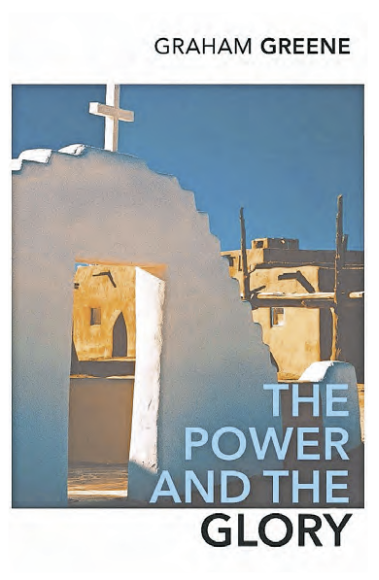I had a strange but ultimately delightful experience in reading James Keane’s new book “Reading Culture through Catholic Eyes: 50 Writers, Thinkers & Firebrands Who Challenge Us & Change Us” (New York: Orbis, 2024, 2010 pp., $25.00).
Early in his book, Keane talks about an intellectual conversion he experienced that had a pro- found impact on his life. The similarity between Keane’s experience and an experience I had as a high school student was so striking that I smiled as I was reading about Jim’s conversion. He writes the following:
“I took a class in college somewhat misleadingly titled ‘Philosophy and Fiction,’ because in all fairness, it was a course on Catholic novels. We read Graham Greene, Muriel Spark, Walker Percy, Flannery O’Connor, Shisaku Endo, Evelyn Waugh, J.F. Powers and more. … That class gave me more insight into the worlds of pedagogy and reading for enjoyment and into the notion that it is possible to communicate some of the great truths (and most of the great struggles) of human existence through the imagining of a scene” (p. xix).
I was stunned to discover how Keane’s experience paralleled my own. When I was a senior at Xavier High School, a Jesuit high school in Manhattan, the Jesuit priest teaching literature had the class read Graham Greene’s novel “Brighton Rock.”
I had never heard of either Greene or the novel. I had no idea that there were novels like “Brighton Rock” — novels that dramatized God as the Hound of Heaven pursuing the sinner. On the surface, the novel is about a gangster, a 17-year-old murderer.
However, the killer is a Catholic, so the deeper meaning of the novel focuses on the character’s relationship with God. I was hooked. Subsequently, I read all of Greene’s novels and many other “Catholic novels.” I cannot emphasize enough how deeply these novels have touched me and shaped my consciousness and conscience. When I recommend Catholic novels, and I have recommended them to many of my friends, the universal reaction I receive is enthusiasm.
I am presently teaching a seminar at John’s University titled “Philosophy and Catholic Novels.” In the seminar, I have students read some of the authors Keane first encountered many years ago. A few years ago, I gave a course called “The Catholic Novel” on Net TV, the television station for the Diocese of Brooklyn. I worked hard on the course, and I am delighted that it is now available on YouTube.
By the term “Catholic Novel,” I mean a novel whose theme is based on some Catholic doctrine, moral teaching, or sacramental principle. It is not necessary that in the novel, every priest, nun, or Catholic is portrayed favorably, but the mystery of Catholicism must be portrayed favorably.
The first novel I have the students read is Graham Greene’s “The Power and Glory,” which dramatizes the life of the last priest in a section of Mexico where the Church is experiencing absolutely terrible persecution. The priest has fornicated, fathered an illegitimate child, and has a serious drinking problem. He is referred to as “a whiskey priest.”
That such a priest is the main character in a novel — which I consider the best novel in English about a priest — is due to Greene’s incredible talent. When, as a college seminarian, I first read the novel and Greene’s novel “The End of the Affair,” my life changed for the better.
Though contemporary college students are often depicted as “nonreaders,” I am pleased to report that the seminar is going well. In fact, the discussion about “The Power and the Glory” was the best discussion in any of the classes I have conducted in the 40 years I have been teaching philosophy at St. John’s University.
Keane writes the following:
“Like most writers and layabouts, I do better with a deadline. It turns out ‘every Tuesday afternoon’ is a rather powerful goad to one’s creativity and production. So, too, is COVID time, when we were all reading more (or clicking more, whatever), and one day, I looked up and I had something like 150 columns under my belt. And after years of writing the
column and getting reader feedback, I discovered that I wasn’t alone in valuing literature for the way it informed my lived experience, my understanding of my Catholic identity, or simply my spiritual sensibilities.
“This book was born from that project. I hope it works as an invitation to similar journeys for the reader. … I took a lot of joy from writing this book — with some failed work along the way — and I am grateful for the ongoing learning that has kept me blessed and busy for so many years” (p. xxi).
I am grateful the book has appeared and plan to recommend it to many.
Father Lauder is a philosophy professor at St. John’s University, Jamaica. His new book, “The Cosmic Love Story: God and Us,” is available on Amazon.com and at Barnes & Noble.

